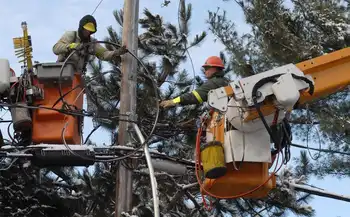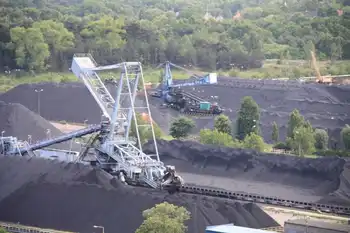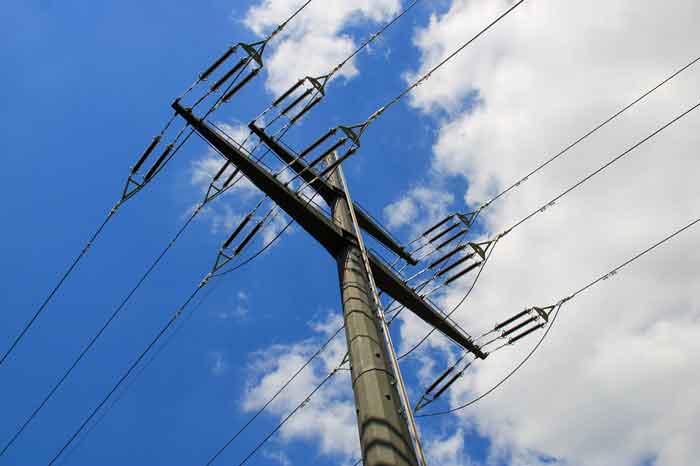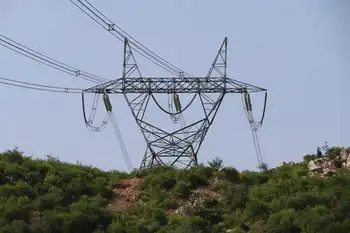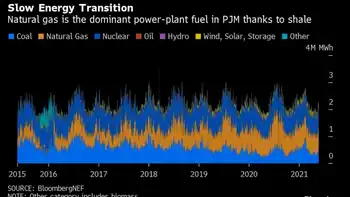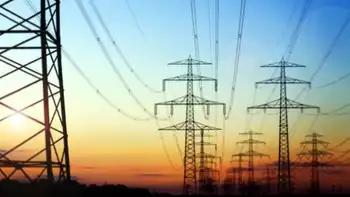Russia, India cement nuclear ties
By Associated Press
NFPA 70e Training - Arc Flash
Our customized live online or in‑person group training can be delivered to your staff at your location.

- Live Online
- 6 hours Instructor-led
- Group Training Available
Putin, who will be the guest of honor at India's Republic Day celebrations during his two-day visit, met with Indian Prime Minister Manmohan Singh, and officials from the two nations signed several deals on energy, scientific and space cooperation.
"Although there has been a sea change in the international situation during the last decade, Russia remains indispensable to India's foreign policy interests," Singh said afterward.
Thousands of security personnel, including snipers, were deployed across India's capital and some metro rail services were suspended to prevent any militant attacks during the national celebrations, officials said.
Rusian and India's close ties during the Cold War – when Moscow was the principal arms supplier to New Delhi – waned after the Soviet Union collapsed and India opened its markets to the rest of the world. The nonmilitary trade has slackened, but the two leaders vowed to give it a boost.
"We hope the high level of political trust should be converted into economic opportunity. We hope to harmonize the political and economic aspects of our relationship," Putin said.
Singh said energy cooperation was at the center of the new ``strategic partnership.''
Russia has been eager to reassert its traditional role as the chief supplier of nuclear technology and know-how to India in the wake of a landmark civilian nuclear cooperation deal between New Delhi and Washington last year that opened the door to U.S. companies' prospective expansion in India's nuclear market.
Russia is building two 1,000-megawatt nuclear reactors in the southern town of Kudankulam, and a memorandum of understanding signed recently said that the four new reactors would be built, but did not outline a timetable or other specifics.
In the past, Russia has stood by India, supplying it with reactors and fuel even as it was denied Western technology for its refusal to sign the international Nuclear Nonproliferation Treaty.
However, the reactor deal would depend on the Nuclear Suppliers Group, a 45-member coalition of countries that regulate the world's atomic trade, lifting its restrictions on India's access to nuclear technology, the two countries said in a joint statement.
Putin also promised to give India a broader access to Russia's vast hydrocarbon wealth.
On the sidelines of Putin's visit, India's state-owned Oil & Natural Gas Corp. signed a deal with Russia' state-controlled OAO Rosneft to jointly bid for exploration and refining projects, ONCG said in a statement.
"We will strongly support that, as well as cooperation with other Russian oil companies," Putin told a Russian-Indian business forum.
India is already a shareholder via the state-run ONGC Videsh Ltd. in the Sakhalin-1 oilfields, which have started production, and Putin said it could be offered a share in the prospective Sakhalin-3 project.
Energy cooperation is vital for India, which has struggled to supply adequate power to its burgeoning economy that has been growing at more than 8 percent in recent years. Despite India's rapid recent development, power cuts remain frequent across the country.
In a separate deal Thursday, India also was given access to Russia's satellite navigation system, GLONASS. The two nations signaled their intent to forge ahead with military ties with two new arms deals: an agreement allowing the licensed production of Russian aircraft engines in India, and another for the joint development of a military transport plane.
India also agreed to join Russia in building a next-generation fighter plane which is to take to the air in 2009 and compete with the U.S. F-35 in global markets. Mikhail Pogosian, the head of Russia's Sukhoi aircraft maker, which is building the plane, told reporters Thursday that the project envisages a shared funding and joint research.
Signifying the importance India attaches to Russia, Singh broke with protocol to personally welcome Putin and his wife, Lyudmila, as well as officials and a delegation of high-profile Russian business leaders at the airport – an honor previously given only to President Bush and Saudi King Abdullah.
"This has been a significant visit both for its symbolism and for its substantive content," said C. Uday Bhaskar of the Institute for Defense and Strategic Analyses, a New Delhi-based think tank. "A resurgent Russia and a more confident India are reiterating their decades-old relationship.''





